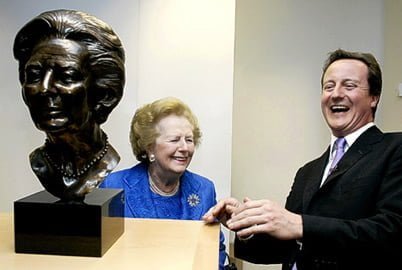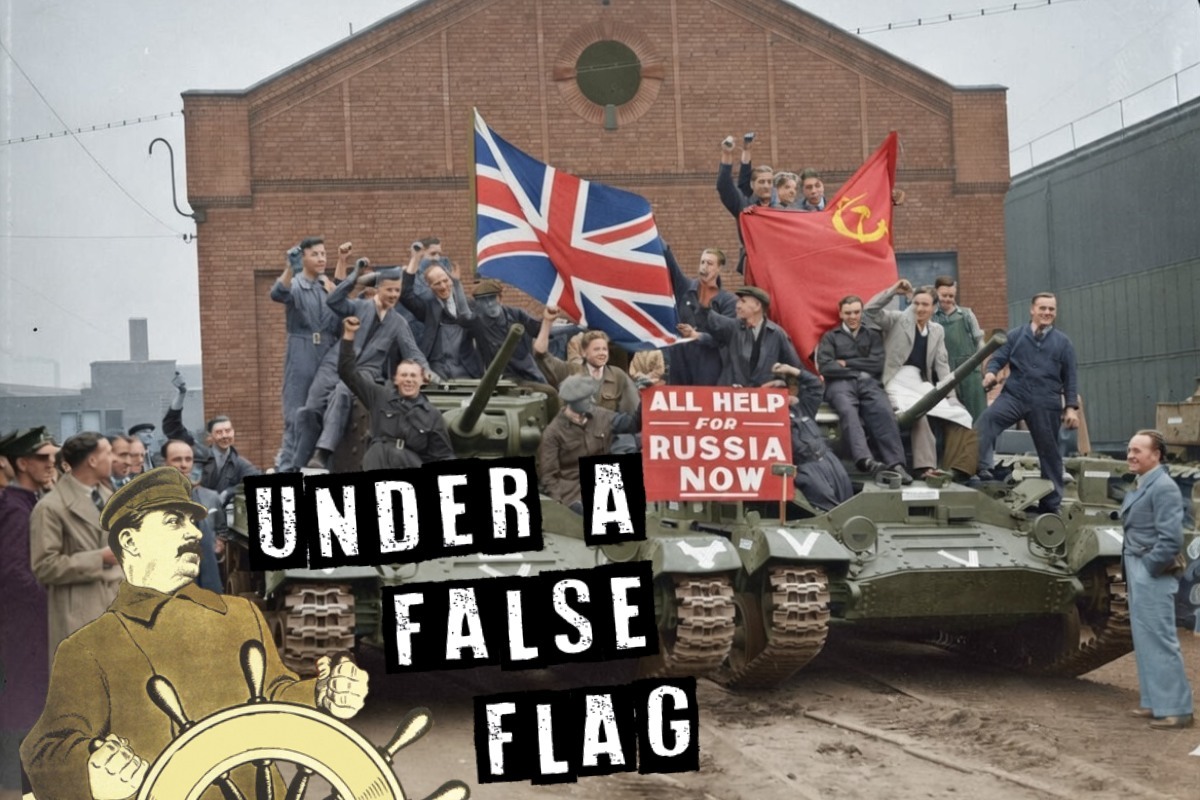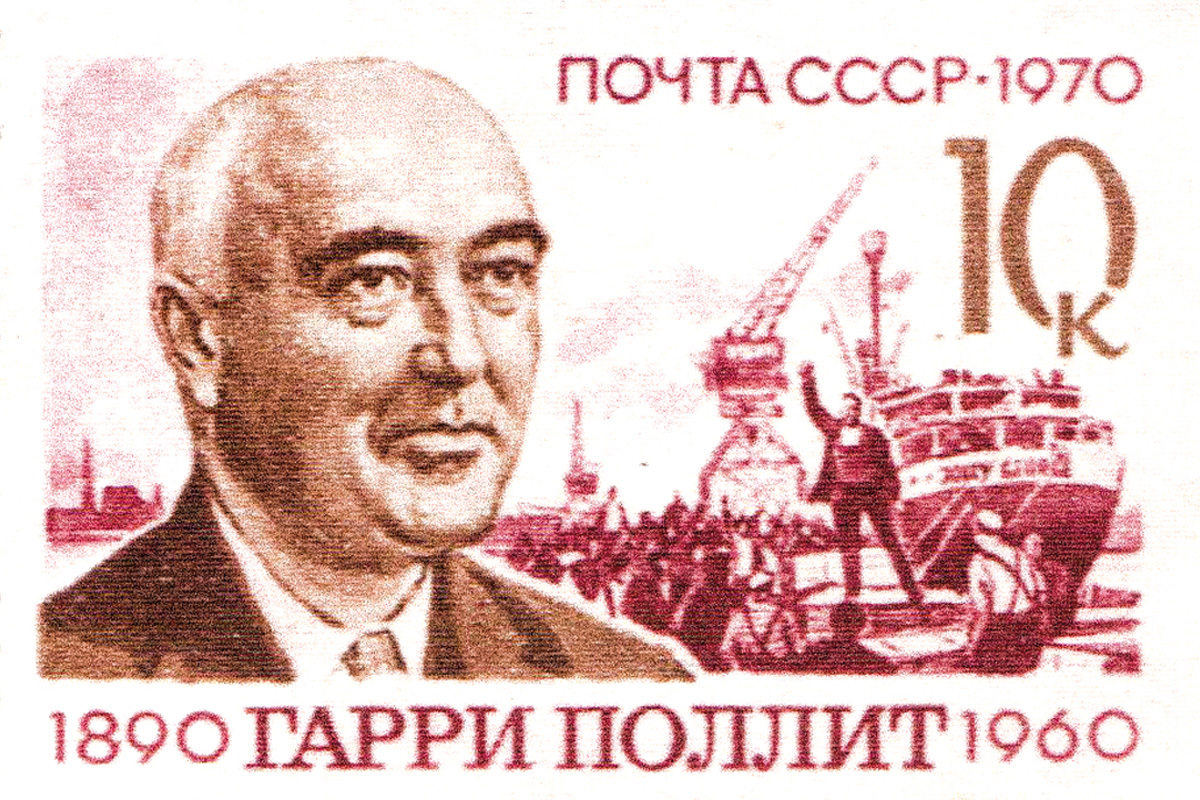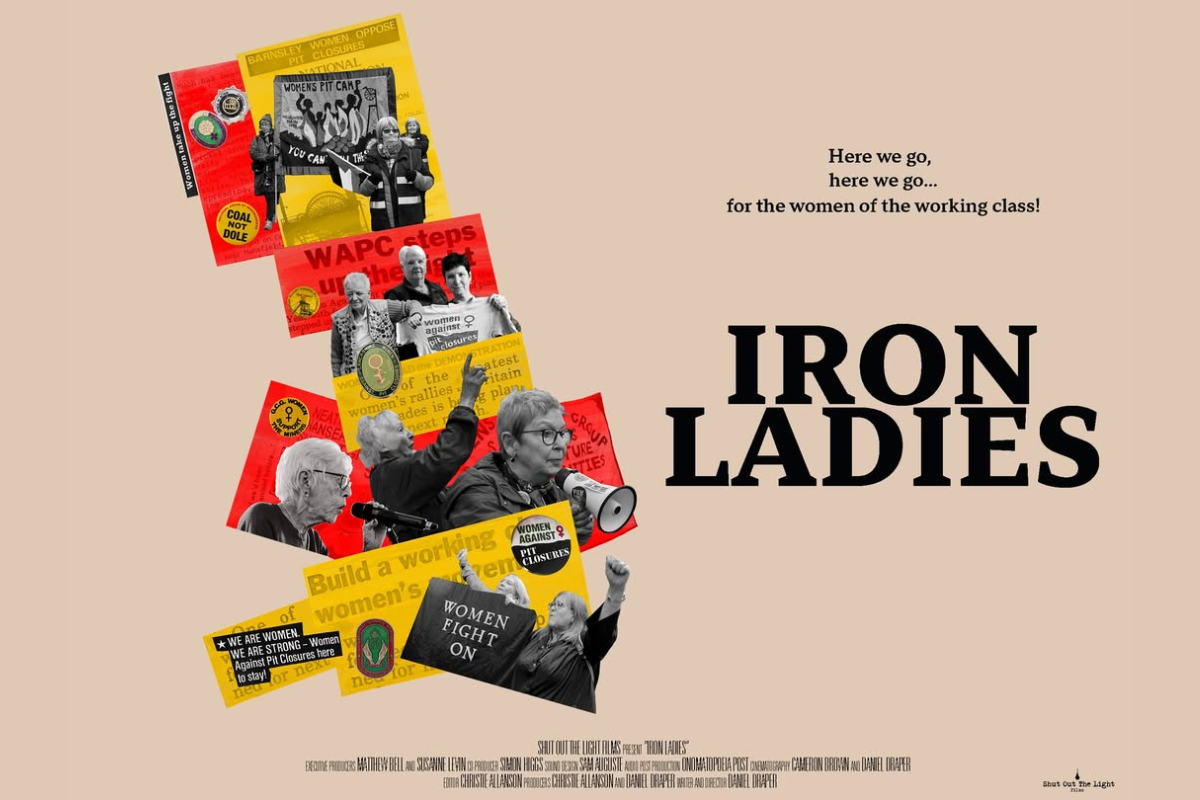"Where there is discord may we bring
harmony…" said Margaret Thatcher 30 years ago this May when she was
elected as British Prime Minister in 1979. Some politicians are remembered for
their achievements, in Aneurin Bevan’s case the founding of the NHS; others
like Tony Blair will be remembered as warmongers and traitors to the ideals of
the Labour movement. Meanwhile John Major will be remembered, if at all, for
his ineffectual personality and his blandness. But very few will have been
hated by working people with such intensity as Margaret Thatcher.
Part 1 by Terry McPartlan
Destruction of Industry
Margaret Thatcher presided over the
destruction of more industry in Britain
than that destroyed by the Luftwaffe in the Second World War. She plotted to
smash the National Union of Mineworkers and to dismantle the welfare state and
all the reforms that had been fought for over decades by the working class. She
slashed welfare payments, attacked the old and the sick and basically
co-ordinated a one sided civil war against the British (and Irish) working
class. There were many people in Britain whose lives were cut short
by unemployment, by sickness and poverty as a result of the politics of
Thatcherism, many families that fell apart, many children who went hungry. Yet,
she was admired by Tony Blair and Gordon Brown, who wants her to have a state
funeral, the sort of event normally reserved for royalty.
But how did Margaret Hilda Roberts, the
grocer’s daughter from Grantham, come to power in the first place and how did
she get away with so much for so long?
Thatcher’s rise to power in the Tory party
reflected two different processes. On the one hand the power of the Tory
grandees, the big landowners and the industrial bourgeoisie, was on the wane by
the early 1970s. Britain’s long slow industrial decline which Trotsky alluded
to in ‘Where is Britain Going’ written in 1925 was only accelerated by the War
and the dominance of US imperialism, the development of the colonial revolution
in the Post War period and the rise of smaller regional powers in the likes of
Latin America and the Middle East.
Relative Decline
On the other hand this relative decline was
superimposed on the definitive end of the Post War boom and the beginning of a
period of general political and economic crisis in the entire capitalist world.
The balance of power within the British
bourgeoisie and internationally had tipped towards the financial bourgeoisie.
In addition the British bourgeoisie were in a state by the mid seventies. The
waves of industrial struggle, including the two national miners’ strikes, one
of which resulted in Ted Heath being dumped from power in 1974, had radicalised
the working class and society was becoming increasingly polarised. On the one
hand many workers were beginning to draw revolutionary conclusions, while on
the other hand sections of the Tory Party were drifting to the right.
Revolution and counter revolution develop side by side after all. That is
because of the class nature of society
was as close to revolution as it has been at any time since the General Strike
of 1926 in the 1970s as Thatcher was clawing her way to leadership of the Tory
party. The selection of Thatcher represented the ruling class rearming for a
period of storm and strife. They had abandoned the politics of consensus
dominant in the Post War boom and were preparing for confrontation with the
working class that they saw as necessary. Thatcher was their chosen instrument.
Thatcher represented a new brand of
Toryism, ostensibly more middle class and "ordinary" than many of their
predecessors. Thatcher and Norman Tebbit – the Chingford Skinhead – sought to
appeal to the backward prejudices of the middle class and to layers of the most
backward workers. Thatcher was heralded as possibly the first woman Prime
Minister. She would understand therefore the needs of ordinary women and so on.
Hardly a day went by without her appearing on telly armed with a shopping
basket bemoaning the lot of the "little people." The fact is however that she
was anything but ordinary. Married to oil millionaire Dennis Thatcher, she
represented the most vicious and small minded layers of the bourgeoisie.
It used to be said that the British
bourgeoisie thought in terms of decades and centuries. At their height they
dominated the Asian sub continent and it was said that the sun never set on the
British Empire. But the social forces that
underpinned Thatcherism were those of finance capital. The laws that she
observed were those of the balance sheet and the speculator, where decisions
were counted as long term if they had a currency of 10 or more minutes. A
similar process had lead to the election of Ronald Reagan in the USA. Reagan, an
ex Hollywood cowboy actor represented a sharp
turn to the right in US politics. Even more than George W Bush however Reagan
was a mouthpiece, a front man for the ruling class.
Class Compromise Dead
The ideas of class compromise and a formal
commitment to the goal of full employment that were dominant in both big
parties during the period of the Post War boom and were based on the theories
of Keynes were abandoned. Thatcher embraced monetarism and neoliberalism. Her
ideology was a ragbag of reactionary prejudices and crackpot economic theories,
but they represented a coherent set of ideas and programme to attack the
working class with.
It’s no surprise that the dominant economic
and political ideas that Thatcher and Reagan supported were those of the Chicago school of
economics – ideas known as monetarism –
that had been promoted by the likes of Milton Friedman and Hayek. These
ideas had been tried before of course. They had been put into practice in Chile under the
murderous military regime of General Pinochet. There the ‘Chicago Boys’ had
advocated tight monetary controls ostensibly to reduce inflation – which means
smashing up the public sector, mass privatisation and attacks on the poorest in
society.
"No Such Thing as Society"
This was combined with a political
programme to advocate self help, standing on your own two feet, and all the
other alleged petty bourgeois virtues. Thatcher went as far as to say that
there was no such thing as society. This was the green light for a massive
onslaught on the working class, their communities and their organisations. This
onslaught wasn’t restricted to Britain
either. It generated a programme of liberalisation and deregulation, that was
ruthlessly applied by the IMF and the World Bank across the ex-colonial
countries. Thatcher dressed up this reactionary programme as the logic of commonsense
and thrift, armed only with a handbag (and a small onion for when she needed to
shed a tear – according to Private Eye) she set off to put the world to rights.
Thatcher’s programme of privatisation and
so called "popular capitalism" was wrapped up with the idea of a "property
owning democracy", where everyone owned their own council house and had shares
in the gas board and the electricity board. They would travel to work on
privatised buses, or privatised tubes and trains. Because everyone was thereby
"standing on their own feet" they would forget about the evil ideas of
socialism and accept the god of "market forces". The fact is though that the
assault on the public sector had much more to do with providing productive
fields of investment for the bosses. Compulsory competitive tendering and the
internal market within the health service served to batter down wages and
conditions across the public sector. In the ‘service’ sector the vast majority
of costs are in wages. The logic of compulsory competitive tendering meant that
private companies could undercut council services, by the very straightforward
policy of cutting wage levels and staff numbers. Thus, once they had also built
their percentage profit into the equation, resulting in a massive growth in the
exploitation of some of the poorest sections of the working class. Of course
Thatcher also opposed the minimum wage as it would ‘harm industry’.
The recession between 1979 and 1981 had a
huge impact on the working class. Unemployment shot through the roof as
millions lost their jobs. What was the Tory answer? These, they said, were weak
old fashioned industries that were uncompetitive and overstaffed. In other
words they took the same attitude as their Victorian predecessors; they introduced
‘laissez faire’ capitalism. In other words Thatcher did absolutely nothing; the
Tories just let the industries fold with calamitous results for working class
communities up and down the country. What about the unemployed? Well, they were
lazy, layabout shirkers, ‘moaning minnies’ and scroungers. The Tories slashed
the number of tax inspectors and took on hundreds of people to police the
benefit system. There were huge tax cuts for the rich while benefits were cut
and people were encouraged to “get on their bikes” and look for work.
Did the medicine work? Monetarism meant
that unemployment went higher sooner in Britain than in any other major
capitalist country. Neoliberal policies didn’t solve anything. They are now
totally discredited and the policies introduced by Thatcher in the 1980s are
seen as being a factor in the present crash.
Recession
But the effects of the recession were such
that whole towns were devastated. Well over 3 million were on the dole, while
at least a million more weren’t counted. The Tories changed the way that they
counted the unemployment statistics some 20 times. New Labour has only
continued massaging the figures. Towns like Consett had grown up around the
steel works and went into freefall when they closed down. The Wearside
shipyards, huge swathes of industry in London,
Liverpool, Manchester, Teesside, Tyneside and
the cotton mills in Lancashire and West Yorkshire
were written off as sunset industries. In one town in the North East – North
Shields – which had a working population of around 40,000, 10,000 jobs were
lost. The effect was particularly felt by the youth. Youth unemployment hit 50%
in some areas. This was at a time when only a minority went into sixth form and
even fewer into university. In many industrial areas it was said that people
walked out of the school yard into the mill, the pits or the shipyards. Then
all of a sudden the apprentice schools closed down and the factory gates were
shut. In the summer of 1981 the anger of the youth erupted into rioting, the
most famous examples being the riots in Brixton and Toxteth. Essentially they
were outbursts of deep anger and frustration which were aggravated by huge
youth unemployment, racist policing and terrible social conditions.
Young people were massively politicised,
there was a huge polarisation. Everything was political, music in particular
and there was a huge radicalisation of young people. As for Thatcher, she was
public enemy number one for working class youth. She was and still is deeply
resented and hated. Many people in their 40s and 50s today represent the lost
generation who suffered years of unemployment and weren’t given the skills to
get work when the boom years eventually came.
Left on the March
The left in the Labour Party had been
developing throughout the 1970s and by 1981 Tony Benn had come within a whisker
of winning the deputy leadership of the Labour Party. Under these conditions
it’s no surprise that the Marxist led Labour Party Young Socialists mushroomed.
But far from winning the 1983 general election Labour was slaughtered, the
Tories gained seats and the right wing began to regain control of the party.
In Ireland Thatcher is remembered for being
the prime minister who callously sent the 1981 hunger strikers to their deaths.
Although it is now clear that the Tories had been in contact with the Sinn Fein
leaders during the hunger strikes, the public persona was of no discussions
with ‘terrorists’ and no negotiations. The net effect of Thatcher’s stubborn
refusal to negotiate was probably to prolong the ‘troubles’ for years.
Falklands Factor
One of the biggest factors in the victory
of the Tories in the general election was the Falklands
war. Out of the blue, or at least it appeared to be, the Argentinean army
invaded the Falklands
Islands or Malvinas a
small bleak and utterly inhospitable group of islands with a tiny population
massively outnumbered by sheep, penguins and elephant seals. The Argentinean
Junta’s invasion unleashed a wave of jingoism on behalf of the press, which
Thatcher used to present herself as a great war leader, casting herself as the
successor to Winston Churchill, Joan of Arc and of course Britannia. The Tories
sent a task force to the South Atlantic to
retake the islands in what was essentially the most expensive election campaign
in history. It’s clear that the Argentine military were surprised by the level
of the response from the British.
But for Thatcher it was too good an
opportunity to miss, an opportunity to play on all of the long faded traditions
of the British Empire, Rule Britannia and so
on by showing “the Argies” who was boss. The response of the Labour leadership
on the other hand was seen as weak and vacillating. The Marxists opposed the
war, and called for a general strike in both Britain
and Argentina
against both Thatcher and dictator Galtieri.
Far from being inevitable or necessary the Falklands
war was essentially a fluke, an empty net.
SDP Defection
Apart from the ‘Falklands
factor’ another factor in Labour’s defeat in 1983 was the confusion spawned by
the right wing split led by Roy Jenkins, Shirley Williams, David Owen and Bill
Rogers. The SDP had been established in 1981 after a section of the Labour
right wing, frightened for their careers decided that they would split in an
attempt to cut across the growing support for the Labour Party. After initial
polls indicated that the SDP would win over 50% of the vote it collapsed, but
still managed to affect the Labour vote, giving Thatcher another accidental
boost. The effect in the Labour Party was further polarisation and a further
development of the left. The ruling class was in danger of losing control of
its second eleven. As the Labour ranks moved left they engineered the split
away of the Social Democratic Party from the Labour Party that kept Thatcher in
power. It should never be forgotten that though she won two landslides,
Thatcher never got the support of more than 43% of those voting. For most of
her reign she was miles behind in the opinion polls and deeply unpopular in the
country.
Under Thatcher, class struggle was the order
of the day.
Part 2 will appear on May 6th 2009 – to read it click here






